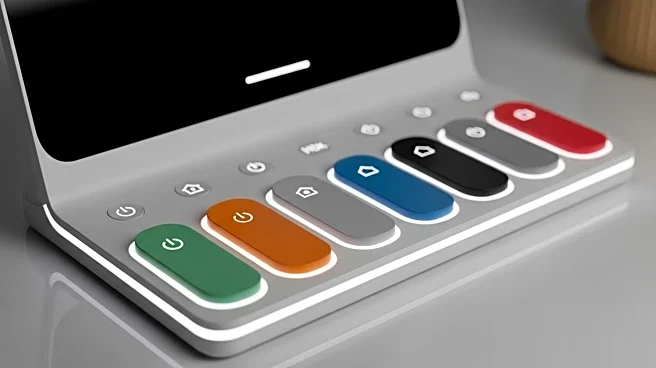What's Happening?
Logitech has announced that it will cease support for its Pop smart home buttons and the associated hub starting October 15, 2025. This decision will render the devices nonfunctional, effectively turning them into e-waste. The Pop switches, launched in August 2016, were designed to provide quick access to various smart home actions, such as controlling lighting presets, playing music, or managing smart blinds. Each button could store up to three actions and was controllable via a dedicated app. Logitech informed customers of this change on September 29, 2025, and offered a 15% discount on select Logitech products as compensation. However, this coupon excludes certain product lines and is valid only in the U.S. until March 31, 2026.
Why It's Important?
The discontinuation of support for Logitech's Pop smart home buttons highlights the challenges faced by consumers in the rapidly evolving smart home technology sector. As companies update their product lines and phase out older technologies, consumers may find themselves with obsolete devices that contribute to electronic waste. This decision impacts users who have integrated Pop buttons into their smart home ecosystems, potentially requiring them to seek alternative solutions. The move also underscores the importance of considering long-term support and compatibility when investing in smart home technology.
What's Next?
Affected users may need to explore alternative smart home solutions to replace the functionality provided by the Pop buttons. Logitech's decision may prompt discussions about the sustainability and lifecycle management of smart home devices, as well as the responsibilities of manufacturers in supporting their products. Consumers might also advocate for more transparent communication from companies regarding product support timelines and potential obsolescence.
Beyond the Headlines
The end of support for Logitech's Pop buttons raises broader questions about the environmental impact of electronic waste and the role of manufacturers in mitigating this issue. As technology continues to advance, the frequency of product obsolescence may increase, necessitating more robust recycling and disposal programs. Additionally, this development may influence consumer behavior, encouraging more cautious investment in smart home technologies with assured longevity.










